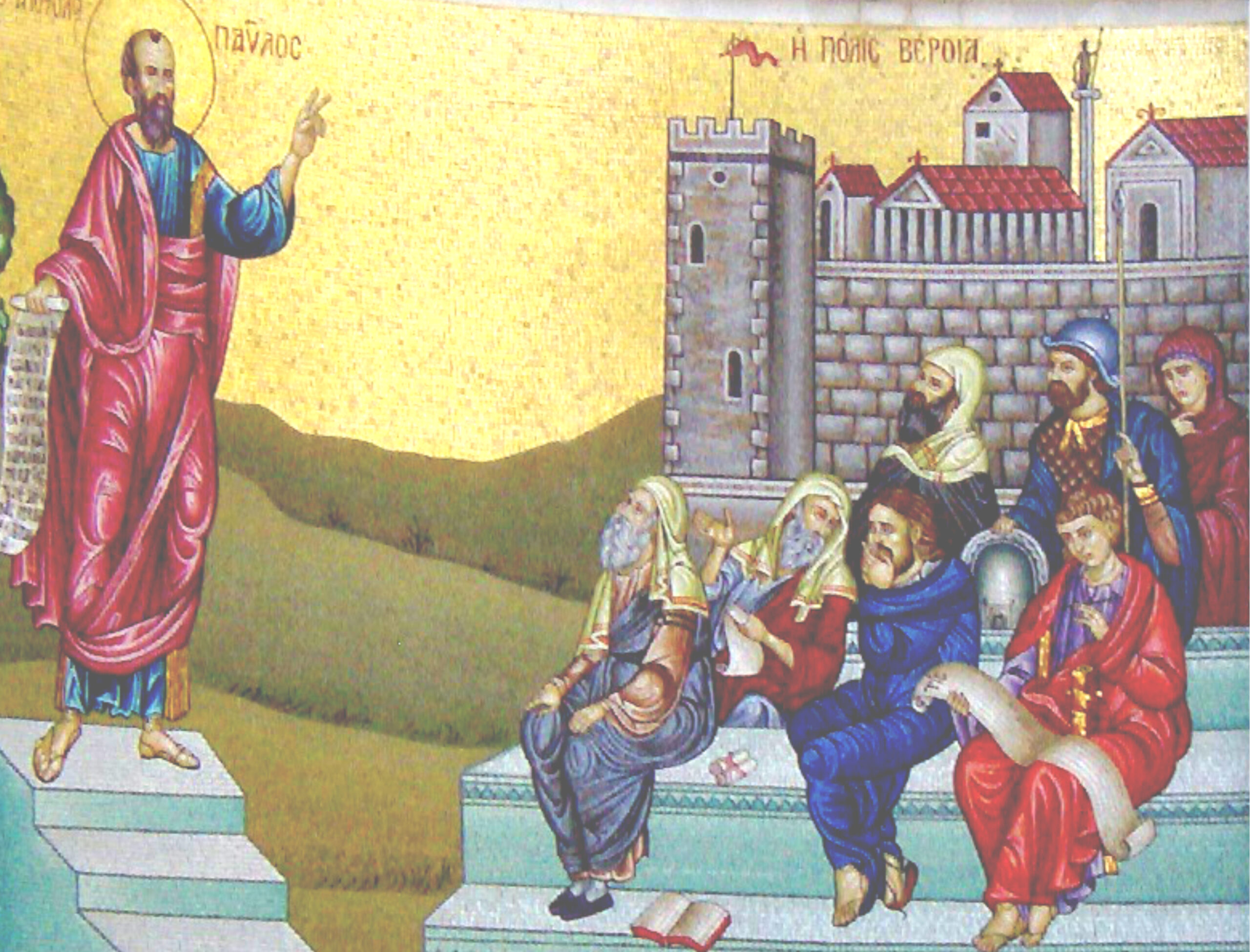How would Saint Paul’s character have been reflected in the Myers-Briggs types? Was he an introvert or an extrovert? Did he focus on the information he learned or did he interpret it and add his own meaning to it? Was he purely logical, or did he include emotional factors in coming to a decision? Did he like to have things understood and decided, or did he keep himself open to new possibilities?
The Myers-Briggs type indicator is used for lots of different activities, from career counseling to suggesting particular forms of prayer. There are formal tests and even credentialing to administer the test available from the Myers-Briggs Foundation. Tests and counseling are available from many sources, approved and unapproved.
This is my own unscientific application of the principles of the type indicator to what I know of Paul from his writings and the writings about him in the New Testament.
The four letters of the type indicator represent preferred ways that individuals use their perception and judgment:
- Is there a focus on the outer world or on one’s own inner world, either extraversion (E) or introversion (I)?
- Is there a focus on the basic information one takes in or does one prefer to interpret and add meaning, either sensing (S) or intuition (N)?
- When making decisions, is there a preference for first looking at logic and consistency or first looking at the people and special circumstances, either thinking (T) or feeling (F)?
- In dealing with the outside world, is there a preference for getting things decided or to staying open to new information and options, either judging (J) or perceiving (P)?
I use the following reasoning to place Paul using each of the parameters of the type indicator:
- Like almost all people of his time, Paul would have been an extrovert. The kind of knowledge of personality which led to understanding the interior world was unknown at his time. (E)
- All the information the Paul takes in is filtered through the perspective of his faith commitment, first during his early background as a Pharisee and later through his commitment to Christ. This is the way he interprets and adds meaning to his immediate sensations. (N)
- Paul’s decision making is based in scripture and in his understanding of the gospel, rather than in his emotional responses to events. (T)
- Paul acted out of his convictions, even as they were growing and evolving over time, rather than responding to his immediate perceptions. (J).
Based on these considerations, I would place Paul in the type ENTJ.
According to the introduction to personality types written by Isabel Briggs Myers, the attributes of the ENTJ include:
- Frankness, decisiveness, assuming leadership readily
- Quickly seeing illogical and inefficient procedures and policies
- Developing and implementing comprehensive systems to solve organizational problems
- Enjoying long-term planning and goal setting
- Usually well informed, well read, enjoying expanding knowledge and passing it on to others
- Forcefulness in presenting ideas
People with the ENTJ personality type make up less than 2% of the population. They are goal oriented and organized. They tend to focus on the most efficient ways to achieve their goals.

They tend to make good leaders. They are visionary in their ability to set direction and practical in their ways of accomplishing it. They are strong willed and independent in their decision making and resistant to external pressures. They tend to be logical and rational in their understanding of their environment, as well as competent and capable in the work they do.
Because of their logical thought processes, ENTJ’s have one significant blind spot—feelings. They have difficulty in understanding personal perspectives and emotional factors when evaluating situations and making decisions. Close personal relationships can be problematic for them since they may miss significant feelings in others.
Does this sound like Paul? His fierce independence and determination carried him across the Roman Empire, and the church organizations he founded survived and prospered.
He, and perhaps his potential wife as well, were fortunate that he never married. His lack of family responsibilities protected him from the distraction and challenges of close relationships. This left him free to focus on the work he did so very well.
Download PDF